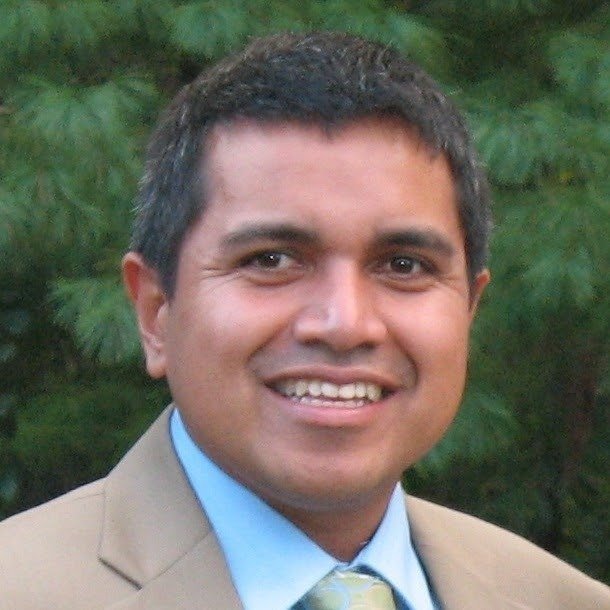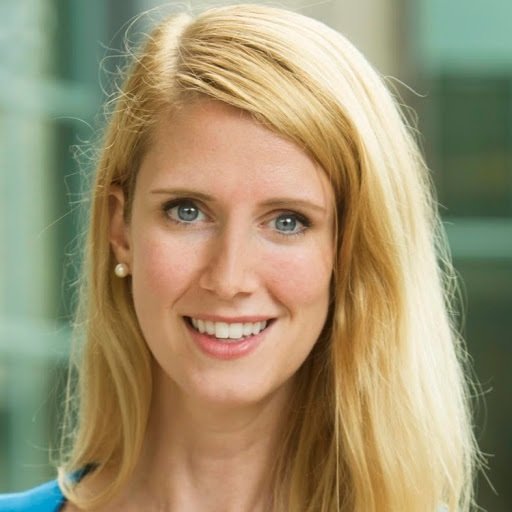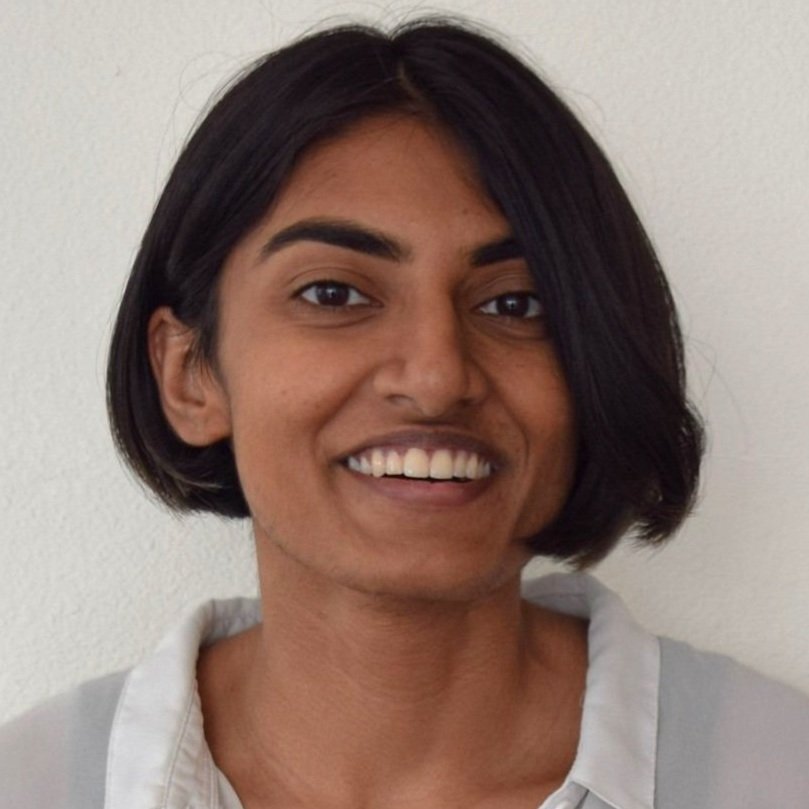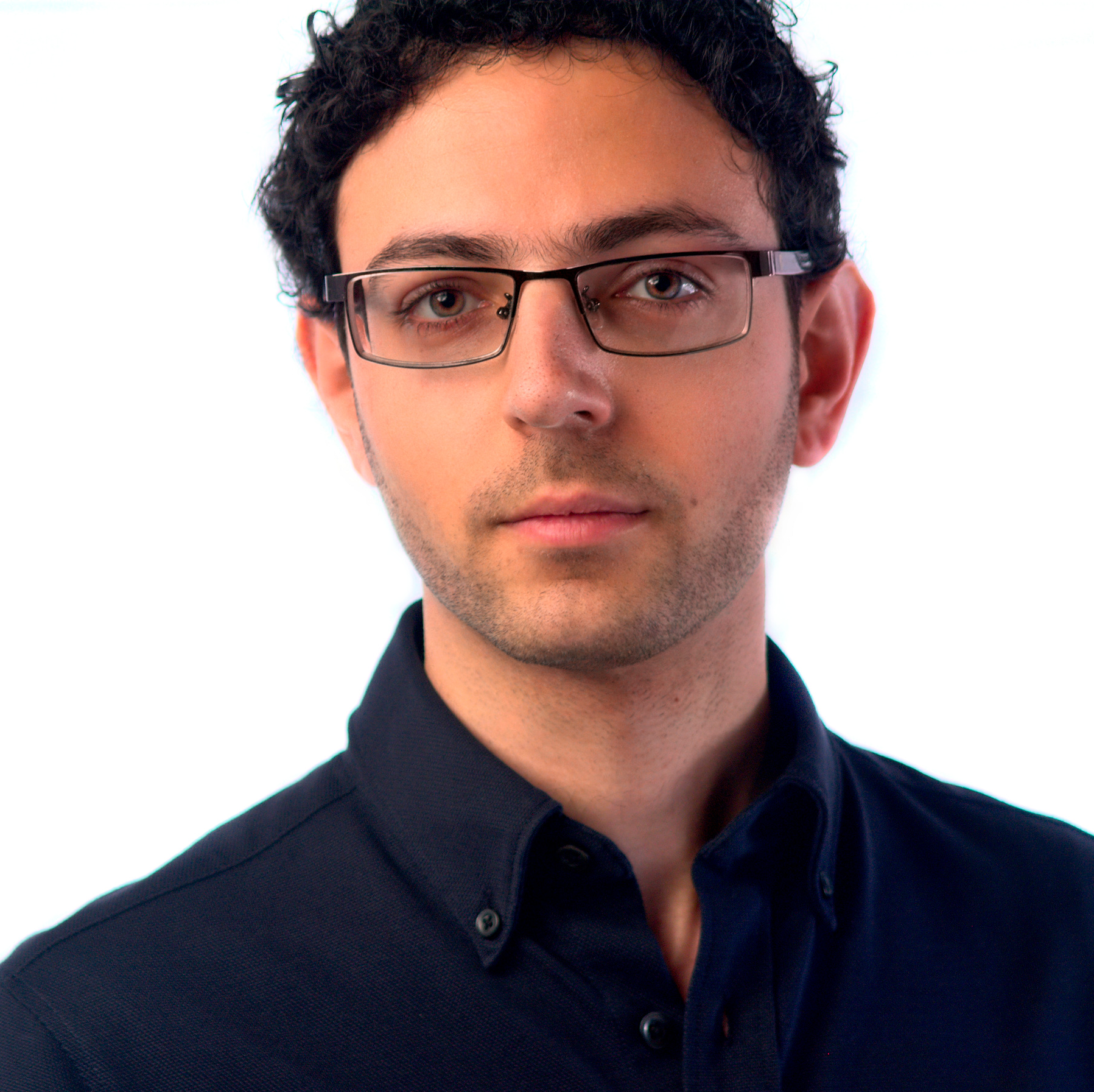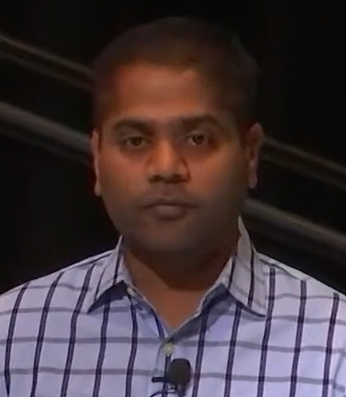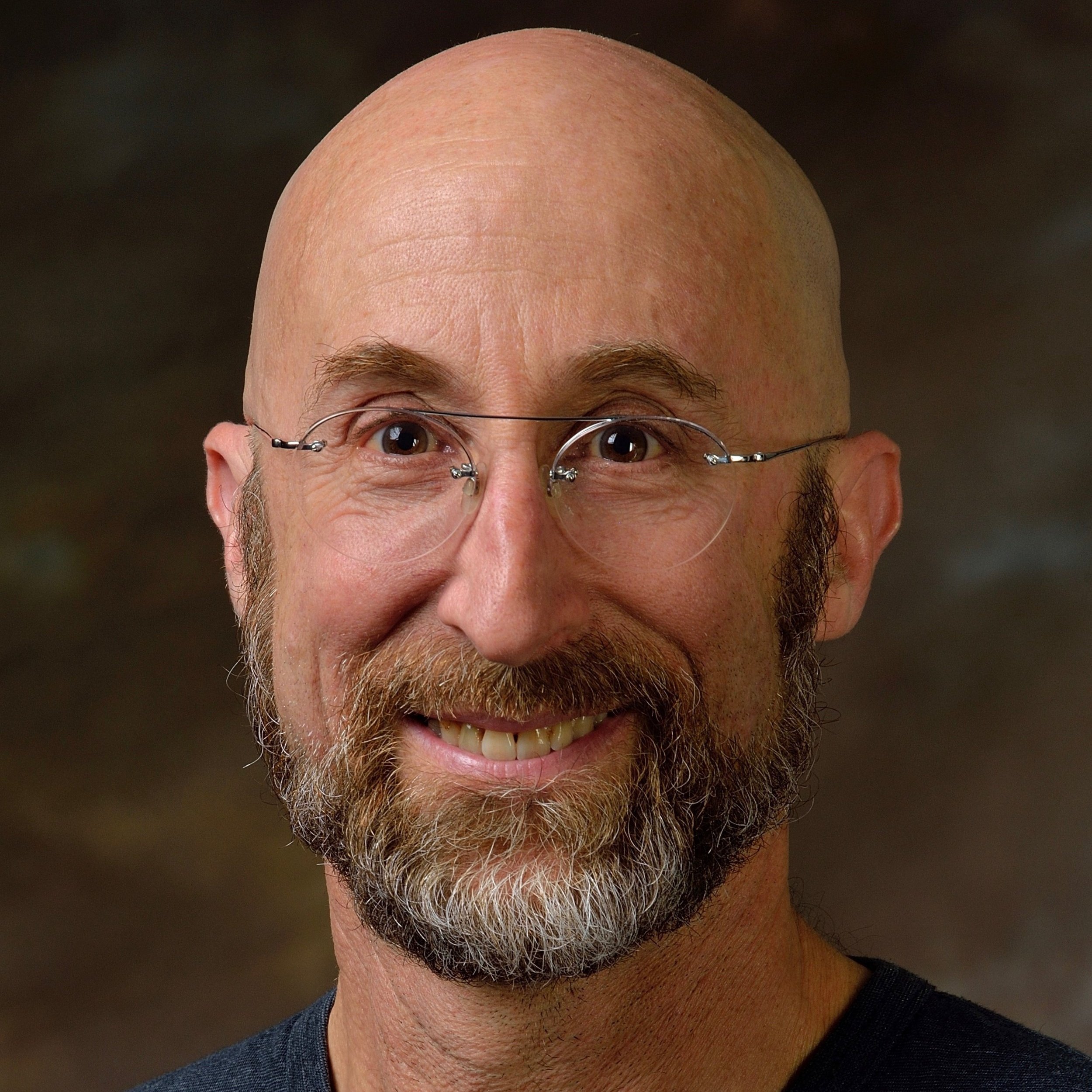2023 Conference
NEW DIRECTIONS 2023
The USC Marshall’s Neely Center for Ethical Leadership and Decision Making is excited to announce its hosting of the 7th annual Psychology of Technology Institute’s “New Directions in Research on the Psychology of Technology” conference, which will be held on November 3-4, 2023, and co-sponsored by the University of California, Berkeley. The conference theme this year will be “The Psychology of AI Value Alignment”. The event will bring together a unique mix of industry leaders, behavioral scientists, technologists, and those in the AI community who are especially interested in creating a healthy psychological future for the increasingly common use of AI in daily life.
Please note that the conference is at capacity and we are not accepting any new registrations. We will be posting content on our youtube channel and substack, so please do watch those spaces for updates.
CONFERENCE ORGANIZERS
Ravi Iyer, USC Marshall School of Business
Nathanael Fast, USC Marshall School of Business
Juliana Schroeder, UC Berkeley, Haas School of Business
Conference Talks
Explore the talks from New Directions 2023 here.
Schedule
Please note that all the times indicated in the schedule are provided in Pacific Time.
Saturday, November 4, 2023
08:15am – 09:15am Breakfast
09:15am – 10:30am Session 5: AI + Communications
Johannes Eichstaedt, “Beyond Engineering: Understanding the LLM Transformation of Society Requires The Social Sciences”
Malte Jung, “Artificial Intelligence in Interpersonal Communication”
Michal Kosinski, “Psychology of Large Language Models”
10:30am – 10:45am Break
10:45am – 12:15pm Session 6: Data Blitz
Begum Celiktutan, “Unraveling Humans’ Inferences about ChatGPT: Self-Other Differences in Usage Behavior and Acceptance of ChatGPT”
Angela Lee, “Social Media Mindsets: How Beliefs About Technology Affect Psychological Well-being”
Smitha Milli, “Engagement, User Satisfaction, and the Amplification of Divisive Content on Social Media”
Matt Motyl, “X-ray Goggles to Examine Social Media Experiences Across Platforms”
Aviv Ovadya, “Integrating AI and Democracy”
Leif Sigerson, “Content Ranking for Wellbeing at Pinterest”
Ertugrul Uysal, “Trojan Horse or Useful Helper? A Relationship Perspective on Artificial Intelligence Assistants With Humanlike Features”
Yunhao (Jerry) Zhang, “Human Favoritism, Not AI Aversion: People’s Perceptions (and Bias) Toward Generative AI, Human Experts, and Human-GAI Collaboration in Persuasive Content Generation”
12:15pm – 01:15pm Lunch
01:15pm - 02:30pm Session 7: AI Bias
Nathanael Fast, “Hidden Attributes of LLMs: Implications for Human Psychology”
Carey Morewedge, “Algorithms as Mirrors: People Better Recognize Their Own Biases Reflected in Algorithms”
Kalinda Ukanwa, “Why Firms Should Want Algorithmic Accountability”
02:30pm - 03:00pm Break
03:00pm – 04:15pm Session 8: Moderated Discussion (Civil Society Focus)
Daanish Masood Alavi, United Nations
Corbin Evans, American Psychological Association
Nathaniel Lubin, Berkman Klein Center & Former Director of Office of Digital Strategy in Obama White House
04:15pm – 04:30pm Concluding Remarks/Wrap-up
04:30pm – 05:30pm Happy Hour in Fertitta Hall lobby and courtyard
Friday, November 3, 2023
08:00am – 09:00am Check-in & Breakfast
09:00am – 09:15am Welcome Remarks
09:15am – 10:30am Session 1: Individual Well-Being
Elizabeth Dunn, “When and Why Do Chatbots Satisfy the Human Need for Social Connection?”
Sara Konrath, “A New Measure of Mindful and Prosocial Digital Engagement (MAP-DE) for Teens”
10:30am – 11:00am Break
11:00am – 12:15pm Session 2: Innovation in Industry
Ramin Bastani and Whitney Engeran-Cordova, “Can Gen AI Help End HIV?”
Emily Saltz, “Constructive Comments: Modeling Prosocial Conversations”
Nick Switanek, “Predicting People: How Humans Infer Humanity from AI Generated Text”
12:15pm – 01:15pm Lunch
01:15pm – 01:45pm Special Session with Sal Khan
1:45pm - 3:00pm Session 3: Alignment
William Brady, “Algorithm-Mediated Social Learning in Online Social Networks”
Anca Dragan, “Human Models for Alignment”
Lyle Ungar, “Using Large Language Models to Help People be Their ‘Best’ Selves”
03:00pm – 03:30pm Break
03:30pm – 04:45pm Session 4: Moderated Discussion (Industry Focus)
Rottem Sagi, Google
Leif Sigerson, Pinterest
Deepti Doshi, New_Public
04:45pm – 05:00pm Transition from JFF LL 105 to Town & Gown
05:00pm – 09:00pm Keynote Panel, Dinner, & Poster Session
Nicola Morini Bianzino, Global Chief Technology Officer, Ernst & Young
Amanda Lenhart, Head of Research, Common Sense Media
Ram Ramanathan, Senior Director of Product Management, Meta
Deepa Seetharaman, AI Reporter at the Wall Street Journal
Nick Switanek, Principle Technical Architect for AI, Microsoft
PArtial list of speakers
With over 20 years of experience in conflict and technology, Daanish Masood Alavi is collaborating with top AI labs, embedding global values, legal codes, and ethics into AI systems. His current focus: a pathway for robust AI alignment and validation. For 16 years, Daanish served the United Nations. Starting in the Secretary-General’s office, he later co-led a UN innovation unit, applying cutting-edge technologies to peacemaking use cases in conflict zones. Previously, he supported Security Council missions in the Middle East and helped establish an evidence gathering mission to document ISIL’s atrocities in Iraq. Recognitions include the Geospatial Excellence Award for a pioneering satellite system aimed at measuring water diminishment and directing a VR film that premiered at the Sundance Film Festival. Daanish co-founded the VR collective BeAnotherLab and was an affiliate at MIT’s Arts, Culture and Technology program. He holds degrees in analytic philosophy and Middle East Studies.
Ramin Bastani is the founder and CEO of Healthvana, a company dedicated to making life better for patients. Under his leadership, the company’s patient engagement platform for healthcare providers has delivered more than 50 million health records to patients across the U.S. Healthvana’s customers include both the largest county in the U.S. and the largest HIV provider in the nation The company has been at the cutting-edge of addressing both the HIV epidemic and the COVID-19 pandemic, and its evidence-based outcomes have been published in places such as the New England Journal of Medicine Catalyst and the American Journal of Public Health. Ramin has spoken at the White House, the National Library of Medicine, Stanford University, and the University of Southern California, and has been featured in media outlets such as the New York Times, Fox News, the Wall Street Journal, NPR, and CNBC. He has also been recognized for his achievements as an Entrepreneur of the Year Finalist for E&Y (Los Angeles) in 2021. Ramin serves as a Board Member of NationBuilder, the world’s largest software platform for leaders, empowering more than 10,000 customers in over 100 countries. He joins other notable Board Members such as Ben Horowitz and Sean Parker. He graduated from the University of Southern California with a BA in Communications with an emphasis in Entrepreneurship.
Nicola Morini Bianzino is EY Global Chief Client Technology Officer, focused on bringing technology products to EY clients and positioning technology at the heart of the organization. With a 20 year track record of driving technology strategy innovation, he advises global clients on technology investment and their innovation agendas, providing industrialized technology products to meet their most pressing business needs. An early AI pioneer, he wrote a thesis on the application of neural networks to business in 1997. Nicola is a high-profile global media commentator and contributes to MIT Sloan Management Review, Forbes and HBR. A thought leader on AI, machine learning, innovation and big data, he is passionate about extracting value from technology investment. He holds a master’s degree in Artificial Intelligence and Economics from the University of Florence.
William Brady (he/him/his) is an Assistant Professor of Management and Organizations. His research examines the dynamics of emotion at the social network level and their consequences for group behavior. His recent work studies how human psychology and technology-mediated social contexts interact to shape our emotions and intergroup attitudes. Combining tools of behavioral science and computational social science, his research aims to develop person-centered and design-centered interventions to improve our digital social interactions. Professor Brady’s research has been published in leading journals such as PNAS, Science Advances, and Perspectives on Psychological Science. His work has also been featured in popular press outlets, including The New York Times, BBC, Wired, and The Wall Street Journal. In recognition of his contributions, he has been selected for the SAGE Emerging Scholar award. Professor Brady earned his BA in Psychology and Philosophy with distinction from UNC-Chapel Hill, his Ph.D. in Social Psychology at New York University, and was awarded a postdoctoral fellowship from the National Science Foundation where he worked at Yale University.
Deepti Doshi co-leads New_ Public with Eli Pariser and Talia Stroud. New_ Public is a product studio for healthy digital public spaces: spaces where people can connect one another, build understanding across differences, and work towards shared goals AND are built to maximize plurality, equity and cohesion not financial returns. With the decline of participation in PTAs, neighborhood groups, local newspapers and the increasing time we are all spending online, we believe that these digital public spaces, if built right (in deep proximity with community members and with public incentive structures), are the new building blocks of our democratic society and are partnering with community leaders, designers and engineers to build them. Previously Deepti was a Director at Facebook (now, Meta) where she focused on community building, cohesion, and incubation: she set up FB’s New Product Experimentation team; created the Community Partnerships team to build products (namely, Groups), programs, and partnerships that support community leaders to take their communities to the next level, and led Internet.org across Asia.
Anca Dragan is an associate professor in the EECS Department at UC Berkeley. Her goal is to enable robots (and AI agents more broadly) to work for and around people. She runs the InterACT laboratory, where she focuses on algorithmic human-robot interaction: algorithms that move beyond the robot’s function in isolation and generate robot behavior that coordinates well with human actions and is aligned with what humans actually want the robot to do. Anca received her Ph.D. from Carnegie Mellon University’s Robotics Institute. She helped found the Berkeley AI Research Laboratory, and is co-principal investigator of the Center for Human-Compatible AI. She has been honored by the Presidential Early Career Award for Scientists and Engineers (PECASE), NSF CAREER, Sloan, Okawa, ONR Young Investigator Award, MIT TR35, and the IEEE RAS Early Academic Career Award.
Elizabeth Dunn (she/her) is a Professor in the Department of Psychology at the University of British Columbia, where she conducts research on how to optimize the use of time, money, technology, and carbon in order to promote happiness. Her work has been published in top journals (including 3 articles in Science) and she has written for The New York Times and The Atlantic. She is a co-author of Happy Money: The Science of Happier Spending, which was selected by the Washington Post as one of the “top 20 books every leader should read.”She has spoken at TED, TEDx, and the Aspen Ideas Festival, and she served as Chief Scientist for a fintech company called Happy Money.
Johannes Eichstaedt is an Assistant Professor in Psychology at Stanford and a Shriram Faculty Fellow at the Institute for Human-Centered A.I. He is a computational psychologist studying mental and physical health through NLP and LLMs, often using social media data. In 2011, he co-founded the World Well-Being Project; with this inter-institutional consortium, he has since attracted $5.7m+ in funding. Johannes received his Ph.D. from the University of Pennsylvania and was elected a Rising Star by the Association of Psychological Science.
55 years young, raised in a small university town in Indiana, Whitney Engeran-Cordova has dedicated over 30 years to the HIV services field. He began his professional life as the Executive Director of Being Alive Long Beach (CA) at 26, providing crucial housing, residential care, and social services for individuals living with HIV and AIDS during the critical time before and after the introduction of anti-retroviral medications. Whitney then took on the role of heading the prevention and testing department for AIDS Healthcare Foundation (AHF), the world's largest provider of HIV care, which serves over 1.8 million people in 45 countries. In his current position as Vice President of the Public Health Division, Whitney oversees a team of 400 professionals who provide services to over 280,000 individuals annually. This includes HIV and STD testing, Pre and Post Exposure Prophylaxis services, and linkage to care in clinics, mobile units, and fixed site locations across 17 states in the U.S. Whitney has led efforts to shape and pass legislation at both the state and federal levels, having testified before state legislative committees and federal regulatory bodies such as the FDA. He has co-authored 18 published studies and led advocacy efforts that resulted in significant changes, such as the campaign to better regulate the adult film industry following the contraction of HIV by several performers. This campaign ultimately led to a statewide ballot initiative, new legislation, and a fundamental change in how adult films are produced in California. Having been drawn to political science and ancient political philosophy, Whitney studied the University of Dallas in Texas. He has been recognized for his substantial contributions to the field, receiving accolades such as Man of the Year by the Lambda Democratic Club, Community Grand Marshal of Long Beach Gay Pride, and recognition from the Geffen School of Medicine at UCLA for his advocacy, prevention, and research efforts in the field of HIV. Above all, Whitney takes the most pride in his personal life, cherishing his 28-year marriage to his husband, Robert, their son, Bobby, daughter in law Rossana and their three beautiful granddaughters.
Nathanael Fast is the Jorge Paulo and Susanna Lemann Chair in Entrepreneurship and Associate Professor of Management and Organization at the University of Southern California’s Marshall School of Business. He received his Ph.D. in Organizational Behavior from Stanford University in 2009. Professor Fast’s research and teaching focuses on how effective leaders navigate power systems. His research examines how power and status hierarchies shape decision making, how people’s identities and interaction styles shape their professional networks, and how AI is shaping the future of humanity. He leads the Hierarchy, Networks, and Technology Lab (HiNT Lab) at USC and is the Executive Director of the Neely Center for Ethical Leadership and Decision Making. He is also a founding Co-Director of the Psychology of Technology Institute. His research findings have been published in top-tier academic journals including Psychological Science, Organizational Behavior and Human Decision Processes, Journal of Experimental Social Psychology, and the Academy of Management Journal. Popular accounts of his work are frequently featured in media outlets such as The Economist, NPR, The Wall Street Journal, Forbes, and The New York Times.
Corbin Evans serves as a senior director of congressional and federal relations at the American Psychological Association. He previously served as the principal director of strategic programs and policy at the National Defense Industry Association. Evans has served at the Department of Homeland Security and as the assistant director of strategic initiatives for the Committee for a Responsible Federal Budget.
Malte Jung is an Associate Professor in the Information Science Department at Cornell University and the Nancy H. ’62 and Philip M. ’62 Young Sesquicentennial Faculty Fellow. His research brings together approaches from design and behavioral science to build understanding about how we can build robots that function better in group and team settings. His work has received several awards including an NSF CAREER award. He holds a Ph.D. in Mechanical Engineering, and a PhD Minor in Psychology from Stanford University and a Diploma in Mechanical Engineering from the Technical University of Munich. Prior to joining Cornell, Malte Jung completed a postdoc at the Center for Work, Technology, and Organization at Stanford University.
Sal Khan is the founder and CEO of Khan Academy, a nonprofit with the mission of providing a free, world-class education for anyone, anywhere. He is also the founder of Schoolhouse.world, Khan Lab School and Khan World School, all nonprofits focused on making world class, personalized mastery education accessible. Sal’s interest in education began while he was an undergraduate at MIT. He developed math software for children with ADHD and tutored fourth- and seventh-grade public school students in Boston. He holds three degrees from MIT and an MBA from Harvard Business School.
Sara Konrath is a social psychologist who directs the Interdisciplinary Program on Empathy and Altruism Research (iPEARlab.org). Her research explores changes over time in social and emotional traits among American young people, such as empathy, attachment style, and narcissism. Other research examines implications of these traits, such as the health and happiness benefits of giving. She has recently focused on developing mindful and prosocial (MAPS) digital engagement tools, including mobile phone-based empathy and kindness-building programs (e.g. Text2Connect, Random App of Kindness). She also regularly creates and evaluates virtual and in person empathy-training programs for educators, doctors, museums, zoos, nonprofits, and other organizations. Dr. Konrath writes a popular Psychology Today blog (The Empathy Gap) and is regularly featured in national and international media outlets, including the New York Times, Wall Street Journal, Time Magazine, Atlantic, NPR, CBC, and BBC radio. She has published over 100 scientific papers, and has given 300+ presentations, including at SouthXSouthwest. She is an Associate Professor at the Indiana University Lilly Family School of Philanthropy.
Michal Kosinski is an Associate Professor in Organizational Behavior at Stanford University Graduate School of Business. His research interests encompass both human and artificial cognition. His recent work centers on examining the psychological processes in Large Language Models (LLMs), and leveraging Artificial Intelligence (AI), Machine Learning (ML), Big Data, and computational techniques to model and predict human behavior. Michal published over 100 papers in leading journals including Proceedings of the National Academy of Sciences, Machine Learning, Psychological Science, and Journal of Personality and Social Psychology, that have been cited over 19,000 times and earned him a 2015 Rising Star award from the Association of Psychological Science. His research inspired a cover of The Economist, a 2014 theatre play “Privacy,” multiple TED talks, a video game, and was discussed in thousands of books, press articles, podcasts, and documentaries. Also, Michal was the first to warn against the privacy risks later exploited by Cambridge Analytica. Michal received his PhD in Psychology from the University of Cambridge (UK) in 2014. Prior to his current appointment, he was a Postdoctoral Scholar at Stanford's Computer Science Department and a researcher at Microsoft Research.
Angela Y. Lee (she/her) is a fifth-year PhD candidate in the Department of Communication at Stanford University. She studies media psychology as part of the Social Media Lab, where she is advised by Dr. Jeff Hancock. Her research investigates the effects of social technologies on psychological well-being and informational well-being, with an emphasis on empowering people to have agency over their experiences with technology through targeted, theory-driven interventions. Her work is supported by the Mark & Mary Stevens Stanford Interdisciplinary Graduate Research Fellowship.
Amanda Lenhart (she/her) is the Head of Research at Common Sense Media. She has spent her career studying how technology affects human lives, with a special focus on families and children. Most recently, as the program director for Health and Data at Data & Society Research Institute, Amanda investigated how social media platforms design for the digital well-being of youth. She began her career at the Pew Research Center, pioneering the Center’s work studying how teens and families use social and mobile technologies. Amanda specializes in translating rigorous research for a broad national audience. Dedicated to public communication, she has testified before congressional subcommittees and the Federal Trade Commission. Amanda’s work has been featured in numerous national publications and broadcasts, including the New York Times, PBS Newshour and NPR’s All Things Considered. Amanda serves on the advisory board to the Technology and Adolescent Mental Wellness initiative at the University of Wisconsin Department of Pediatrics and on the Technical Advisory Panel to the American Academy of Pediatrics Center on Social Media and Youth Mental Health. She also advised the Smithsonian Museum of Natural History on the development of a new exhibit on mobile phones.
Nathaniel Lubin has spent his career focused on digital strategy, technology, and politics. Recently, his work has centered on developing novel approaches to improving online discourse, building measurement tools, and combating misinformation. He founded Fellow Americans, a non-profit which creates and tests more effective digital content, focusing on topics like COVID-19 response, civic participation, and improved social trust. He is the founder and CEO of Survey 160, a software product designed to source data for polling and research. As a consultant, he has assisted more than 30 startups, major corporations, foundations, and advocacy organizations working to leverage technology and digital tools to better communicate with key audiences. Nathaniel previously was the Director of the Office of Digital Strategy at the White House where he led a team of strategists and practitioners to modernize the way the White House engaged and communicated with the American public. Before that, he served as Director of Digital Marketing at Obama for America in 2012 where he led the largest paid digital fundraising, persuasion, and outreach programs yet run in politics with a budget of more than $112 million. Originally from New York, Lubin is an honors graduate from Harvard University, a Rebooting Social Media Fellow at Harvard's Berkman Klein Center, and a Visiting Fellow at the Digital Life Initiative at Cornell Tech.
Smitha Milli (they/them) is a postdoctoral associate at Cornell Tech. Their work primarily focuses on (a) experimentally evaluating the impact of social media ranking algorithms on users and society, and (b) designing and learning new objective functions for ranking that produce more socially-beneficial outcomes. They hold a PhD in Electrical Engineering and Computer Science from UC Berkeley and their postdoc is funded by an Open Philanthropy early career grant.
Carey K. Morewedge is a Professor of Marketing and Everett W. Lord Distinguished Faculty Scholar in the Questrom School of Business at Boston University. His research examines the psychology of judgment and decision making and how to improve it. The substantive focus of his work explores psychological determinants of value and how they influence the perception of money, goods, and new technologies (e.g., digital goods, algorithms, and artificial intelligence). Professor Morewedge has published more than 70 articles and chapters in journals, including Science, Trends in Cognitive Sciences, Psychological Science, Nature Human Behavior, Nature Medicine, Journal of Consumer Research, Journal of Marketing Research, Management Science, Journal of Experimental Psychology: General, and the Journal of Personality and Social Psychology. His popular writing has appeared in outlets including The New York Times, Time Magazine, Forbes, and Harvard Business Review. The United States Government uses interventions Professor Morewedge developed to reduce cognitive bias in intelligence analysis and management. Professor Morewedge has received more than $2.4 million in external research funding and awards for his work, including the 2022 Best Paper award from the Journal of Consumer Research, the 2010 Wegner Theoretical Innovation Prize from the Society for Personality and Social Psychology, recognition as an inaugural Scholar of the Marketing Science Institute, an Idea of the Year award from The New York Times, and inclusion in Poets and Quant's Top 40 under 40 Business School Professors.
Matt Motyl, is fascinated by the ways in which technology can shape society. He has studied cognitive biases, misinformation, threats to democracy, and well-being for over 17 years. He has spent the past 7-plus years working to use technology to promote the social good by consulting with numerous companies, civil society organizations, and policymakers. He obtained his Ph.D. in Social Psychology from the University of Virginia.
Aviv Ovadya works at the intersection of AI, democracy, and deliberation. He is a founder of the AI & Democracy Foundation, a research fellow at newDemocracy; an affiliate at Harvard’s Berkman Klein Center and the Centre for the Governance of AI; and consults for civil society organizations, technology companies, and funders. His work explores the impacts of AI on the information ecosystem and how to ensure that democracy can keep up with the rate of AI advances, building on lessons from applied deliberative democracy. Aviv holds a B.S. and M.Eng. from MIT. His work has been covered regularly, including by the BBC, NPR, the Economist, and The New York Times and his writing has been published by WIRED, Bloomberg, the MIT Technology Review, and the Washington Post.
Ram Ramanathan is passionate about constructing platforms and products that both delight and safeguard users through the advancement of AI. Currently, Ram aids teams within Meta, which are tasked with advancing AI to ensure a connection between users and content that delights them. His team is at the forefront of providing State of the Art AI initiatives that significantly enhance the core recommendation systems, unveiling user value with inventive solutions. Before his venture into recommendations, Ram was entrusted with the integration of the latest AI advancements to protect users from negative experiences across the Facebook family of products. In his earlier professional engagements, he spearheaded product management for enterprise software products, notably establishing Google Cloud as a leading AI platform, and contributing to Microsoft SQL Server as a premier BI/DW platform.
Rottem Sagi is a sociologist with a background in market research and user experience, employing an array of quantitative methods to delve into social problems and their impact on users' experiences. She has led numerous large-scale survey studies, identifying pain points and suggesting methods to alleviate negative experiences. Through advanced statistical techniques and big data analysis, Rottem has explored the distribution of adverse experiences across the Facebook App, translating complex research insights into strategic recommendations. These recommendations have been pivotal in developing product solutions for Facebook’s extensive user base of 3 billion.
Emily Saltz (she/her) is a UX Researcher at Google Jigsaw, working on tools for platforms and moderators to address online harms. Before that, she was a UX Researcher at the New York Times R&D Lab, conducting research on topics ranging from media credibility (the News Provenance Project), to NLP Q&A tools. She was a 2020 Fellow at the Partnership on AI, and holds a Master’s in Computer-Interaction from Carnegie Mellon, and a BA in Linguistics from UC Santa Cruz.
Deepa Seetharaman is a reporter covering artificial intelligence from The Wall Street Journal’s tech bureau in San Francisco. Her stories explore the way AI is changing business and society. Previously, she covered the intersection of technology and politics and was the Journal's beat reporter covering Facebook (now Meta). She's written about Instagram's effect on teen girls and how AI systems struggle with racist and hateful content. She's covered antitrust issues and profiled some of the most influential executives in Silicon Valley. Deepa joined the Journal in 2015 from Reuters, where she covered e-commerce, focusing on Amazon, as well as the U.S. auto industry and labor unions. She's won several awards for her coverage including the George Polk Award for Business Reporting and the Gerald Loeb Award in Beat Reporting.
Leif Sigerson, PhD, is a senior data scientist at Pinterest, where he works on surveys, data labeling, LLM's and wellbeing. Prior to Pinterest, he did his PhD in social psychology, focusing on wellbeing and social connection on Twitter as well as survey measurement methods.
Nick Switanek, PhD, is Principal Technical Architect for AI with the Microsoft Technology Centers. He works with clients across industries to design and build AI systems that create business value and align with responsible AI principles. Based in Chicago, Nick has been an enterprise data science leader for more than a decade, was visiting assistant professor at Northwestern University's Kellogg School of Management, and earned his doctorate in Organizational Behavior from the Stanford GSB.
Kalinda Ukanwa (she/her/hers) is Assistant Professor of Marketing at the University of Southern California. A quantitative modeler, Professor Ukanwa researches how algorithmic bias, algorithmic decision-making, and consumer reputations impact firms. She is the winner of the 2018 Eli Jones Promising Young Scholar Award and a finalist for the 2018 INFORMS Service Science Best Student Paper Award, 2019 Howard/AMA Doctoral Dissertation Award, and the 2020 AMS Mary Kay Doctoral Dissertation Award. In a prior life, Professor Ukanwa was an industrial engineer, financial analyst, and finance executive at Walt Disney, Citigroup, Viacom, and Kaplan.
Lyle Ungar is a Professor of Computer and Information Science at the University of Pennsylvania, where he also holds appointments in Psychology, Bioengineering, Genomics and Computational Biology, and Operations, Information and Decisions. He has published over 400 articles, supervised two dozen Ph.D. students, and is co-inventor on ten patents. His current research focuses on using natural language processing and explainable AI for psychological research, including analyzing social media and cell phone sensor data to better understand the drivers of physical and mental well-being.
Ertugrul Uysal is a postdoctoral researcher at the Chair of Technology Marketing at ETH Zürich. He has a PhD in Management from the University of Neuchâtel in Switzerland, which he completed in 2023. His research focuses on how consumers interact with and relate to digital technologies. He is also interested in the individual and societal implications of social media, artificial intelligence, and consumer data privacy. His research interests revolve around the overarching goal of achieving a sustainable digital future. Prior to his doctoral studies, he received an MS degree in Cognitive Neuroscience from the University of Trento in Italy and a BS degree in Biology from Fatih University in Turkey.
Yunhao (Jerry) Zhang is a postdoctoral fellow under the supervision of Prof. Juliana Schroeder and Prof. Nate Fast. His current research focuses on exploring the effects of emerging technologies on individual and societal well-being. He earned his Ph.D. from the MIT Sloan School of Management, where he was advised by Prof. Drazen Prelec and Prof. David Rand. His doctoral thesis investigated the cognitive mechanisms that underlie belief updating. His ongoing projects encompass a range of topics, including the influence of generative AI on academia and society, consumer perceptions of AI, motivated reasoning and partisan bias, as well as methods for persuasion and combating misinformation.


